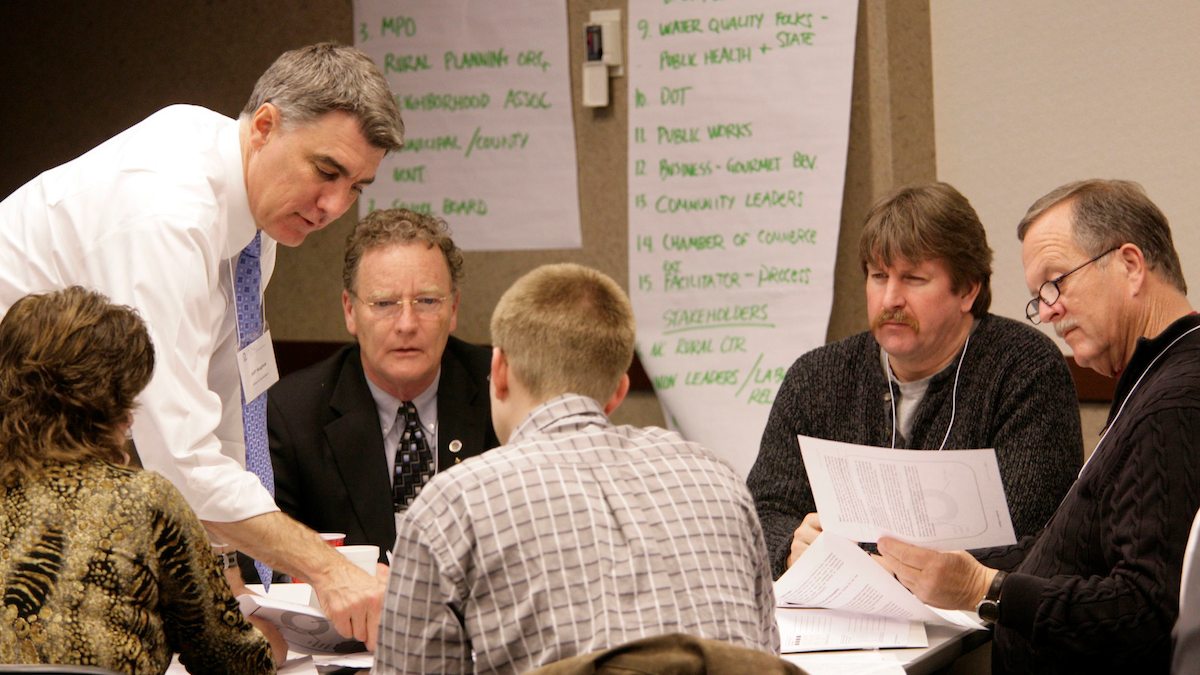Helping communities protect the environment
The Environmental Finance Center has been helping North Carolina communities reach their environmental protection goals for the past 20 years.

For 20 years, the Environmental Finance Center, based in the UNC School of Government, has helped communities in North Carolina and across the country reach their environmental protection goals.
The Environmental Finance Center has worked with local governments to overcome significant financial challenges facing a variety of environmental protection projects, such as a billion-dollar effort to restore a community’s polluted water supply or the replacement of a small town’s 50-year-old water treatment plant,
As the center celebrates its 20th anniversary this year, we talked to Jeff Hughes, the director of the EFC, to learn more about its mission and how its helping local communities.
Why was the Environmental Finance Center founded two decades ago?
We started as a U.S. Environmental Protection Agency project. The EPA was selecting universities to provide these types of services across the country. We were one of the early ones chosen by the EPA to receive a modest annual budget and provide services in the southeast.
How does the work of the Environmental Finance Center tie into UNC-Chapel Hill’s overall mission?
We track Carolina’s mission really well. We do what we think is the cutting edge of research. Where we are strongest is that we really dig into the education and engagement part of the Carolina mission. We run a lot of different education programs that range from undergraduate and graduate degree courses all the way up to continuing education for environmental service providers from across North Carolina and across the country. We spend a tremendous amount of time directly responding to public officials, state policymakers, local utilities and community leaders. In many respects, we’re a go-to resource for North Carolina, but we get requests for advice and assistance from folks across the country. Then we use that experience and the teaching experience to cycle back and inform what kind of research we do.
Over the course of 20 years, the center has been part of many large projects throughout the state. What are some of the projects that you are most proud of?
One that I think represents all different aspects of our mission and our activities is the financial information systems that we’ve conceived and created over the years. It has a research component, it has an advising component and it has a teaching component. They’re essentially benchmarking systems at the state level that show the financial attributes and the financial health of environmental service providers. They’re used by a utility that is interested in seeing how they’re doing in comparison to their peers. A state entity that’s trying to understand the challenges that local utilities are facing might use it. It’s a web-based tool that gets a lot of use, and it all started with a project in North Carolina. We did one in North Carolina, and now we do the same type of system in about 20 states. It’s definitely a research tool for us because we collect a lot of information and we use that to do analyses, but lots of people on any given week use it to benchmark their services.
What’s in store for the Environmental Finance Center in the next 20 years? How do you see the center progressing?
I think our fundamental model will stay pretty much the same. We’re doing a lot with information technology, and I think that is obviously advancing, so we’re spending a lot of efforts with modifying our computer applications and that kind of stuff. We started off working primarily in North Carolina and the southeast, and we’re really all over the country now. We continue to get requests for our services in new states, so I think that we’ll continue to expand and keep working in other states.
We track Carolina’s mission really well. We do what we think is the cutting edge of research.




